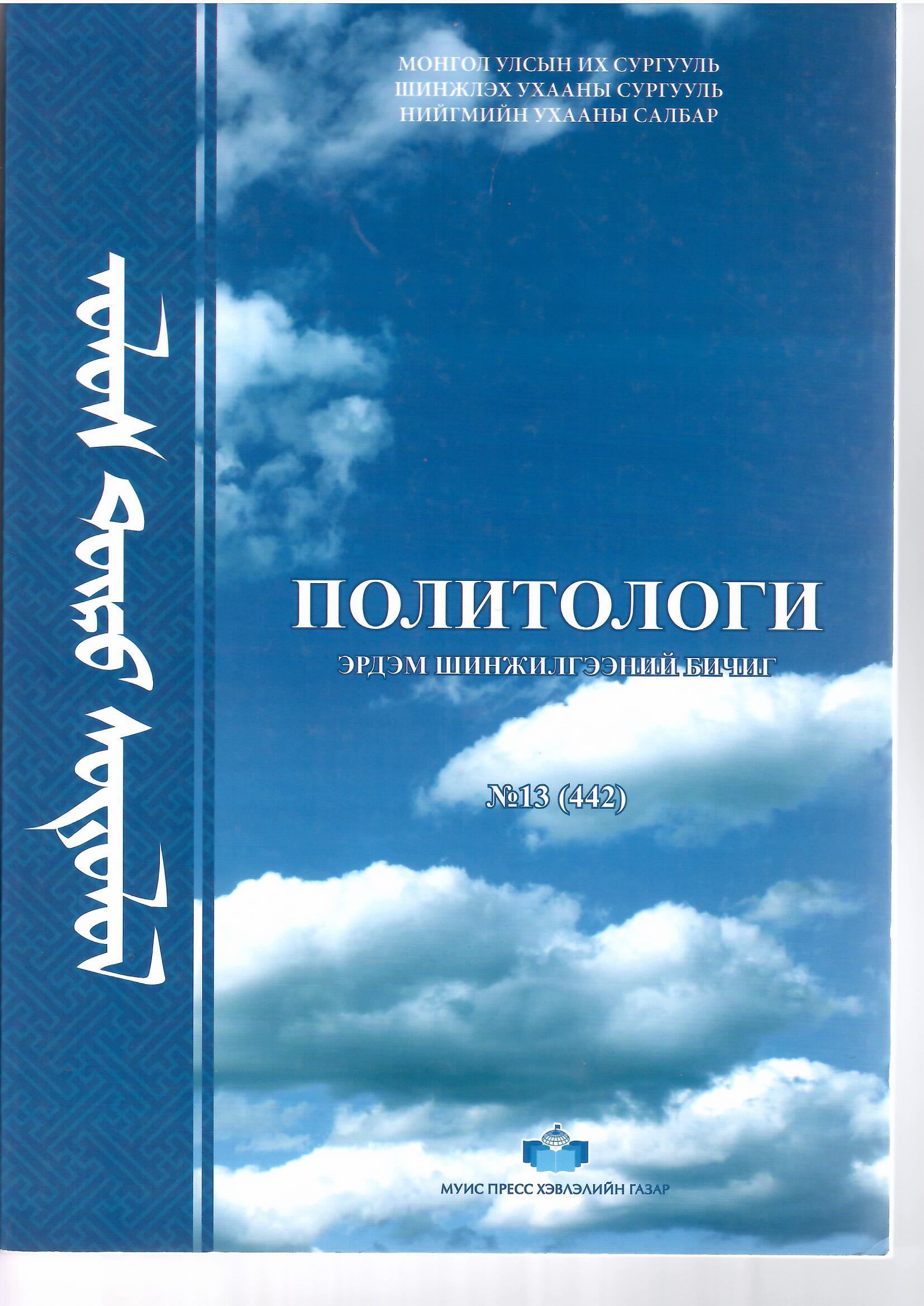МОнГОЛ даХЬ аРдЧИЛаЛ: ИРГЭнИй УЛС ТөРИйн ОРОЛцОО Ба ХЭвЛЭЛ МЭдЭЭЛЛИйн ХЭРЭГСЛЭЛ
Keywords:
иргэний улс төрийн оролцоо, оролцооны ардчилал, сонгогчдын улс төрийн үйл байдал, улс төрийн нам, сонгууль, сонгуулийн коммуникаци, олон нийтийн мэдээллийн хэрэгсэл (ОНМХ), телевиз, иргэний сэтгүүл зүй, цахим сэтгүүл зүйAbstract
Discussing public issues openly and in participation of all, ancient Greeks and Romans engaged in the idea of direct democracy. One of the exemplary places of this type of democracy was the ancient Athens. In comparison, modern democratic nation states have adopted the representative form of democracy. Though it may be the best system in place thus far, representative democracy has its own weaknesses. For this reason, some scholars argue that direct democracy is a substitutive asset, which can reduce the weaknesses of representative democracy. In direct democracy, issues are discussed openly by the participation of all in one place at the same time, allowing for the dissemination of information and the resulting conclusion and decisions to be fair and transparent. Similarly, modern day mass media makes this mode of discussion and decision making in politics more available and accessible to public. The main goal of direct democracy is to make the entire state (or government) policy and decision-making processes fair, transparent and inclusive of public opinion.




